 What Clients Love: A Field Guide to Growing Your Business
What Clients Love: A Field Guide to Growing Your Business
by Harry Beckwith
Harry Beckwith is a critically-acclaimed international best-selling author, best known for his marketing classics Selling the Invisible and The Invisible Touch. He heads Beckwith Partners, a marketing and branding firm that has advised 29 Fortune 500 clients … including Microsoft, GM and Target. Beckwith is also an internationally acclaimed speaker and teacher on marketing and customer relationships.
What I really appreciate and enjoy about this book is the fact that I can open the book to any page and start highlighting content. This reader-friendly format doesn’t require that I start with chapter one and read chronologically until finished. There are approximately 175 short 2- to 3-page essays allowing you to choose those which most intrigues you or best meet your needs immediately.
Beckwith focuses on selling, servicing, and branding in a marketplace where the average consumer is deluged with 3,200 advertising messages a day. He also addresses successful approaches to positioning, marketing, client attraction, customer retention, and communication strategies emphasizing the importance of every member of an organization contributing to its growth.
I especially enjoyed his many references to pop culture, motion pictures, clever ads we’re all familiar with, and lessons learned from so many of the companies we all know and patronize.
Beckwith also provides readers with “A 7-Page Checklist of Questions to Ask in Building an Exceptional Business,” “A Reading List for Growing a Business,” as well as 20 questions for choosing a name for your business.
The author applies his unequaled clarity, insight, humor and expertise to a new age of global competition, mass communication, financial challenges, and mass confusion. He shares four crucial trends we must all deal with in our pursuit of success:
- Option and Information Overload
- The Decline of Trust
- The Rise of Invisibles and Intangibles
- The Wish to Connect
Rather than describing the unique content of this book, I think you’ll get a better idea of what to expect by sharing some of the essay content titles. You’ll quickly realize this book certainly has something for everyone.
- Finding the White Hot Center
- The End of Missions
- Fortune Favors the Bold
- New Economy, Same People
- Mark Twain’s Marketing Lesson
- Harpers, McPaper, and Tiger
- Wield a Velvet Sledgehammer
- What Would Aesop and Jesus Do?
- Lincoln Had No Slides At Gettysburg
- Think Pterodactyls and Typhoons
- Familiarity and the New 80/20 Rule
- Gerber Unbaby Food and Salty Lemonade
- Omaha Surfing and Jefferson Airplane
- Clients Love Odd Things
- Harley, Ogilvy and the Incredible Shrinking Name
- Imagineering’s Six Commandments
- Clients Understand with their Eyes
- Boiled Critter at Tiffany’s
- What Your Clients Actually Buy
- Efficient Tools Aren’t
- Your Fastest Way to Improve Client Satisfaction
- Ten Rules of Business Manners
- Ritz-Carlton’s Shortcut to Satisfied Customers
- Why Do Some People and Businesses Thrive?
If these few examples don’t tweak your interest, this book isn’t for you. In addition, you’re going to miss some terrific tips, tools and strategies which can be easily and quickly transferred back to your workplace to insure greater success. Better hope your competitors don’t read this one.
(This book review was originally published in 2009 as one of the Top 10 Books – Edition 19.)
About Harry K. Jones
Harry K. Jones is a motivational speaker and consultant for AchieveMax®, Inc., a company of professional speakers who provide custom-designed seminars, keynote presentations, and consulting services. Harry's top requested topics include change management, customer service, creativity, employee retention, goal setting, leadership, stress management, teamwork, and time management. For more information on Harry's presentations, please call 800-886-2629 or fill out our contact form.

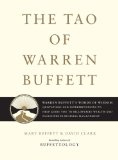 The Tao of Warren Buffett: Warren Buffett’s Words of Wisdom: Quotations and Interpretations to Help Guide You to Billionaire Wealth and Enlightened Business Management
The Tao of Warren Buffett: Warren Buffett’s Words of Wisdom: Quotations and Interpretations to Help Guide You to Billionaire Wealth and Enlightened Business Management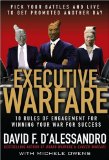 xecutive Warfare: 10 Rules of Engagement for Winning Your War for Success
xecutive Warfare: 10 Rules of Engagement for Winning Your War for Success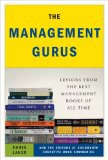 The Management Gurus: Lessons from the Best Management Books of All Time
The Management Gurus: Lessons from the Best Management Books of All Time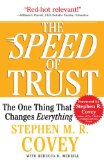 The SPEED of Trust: The One Thing That Changes Everything
The SPEED of Trust: The One Thing That Changes Everything What Made jack welch JACK WELCH: How Ordinary People Become Extraordinary Leaders
What Made jack welch JACK WELCH: How Ordinary People Become Extraordinary Leaders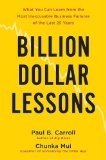 Billion-Dollar Lessons: What You Can Learn from the Most Inexcusable Business Failures of the Last 25 Years
Billion-Dollar Lessons: What You Can Learn from the Most Inexcusable Business Failures of the Last 25 Years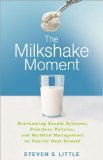 The Milkshake Moment: Overcoming Stupid Systems, Pointless Policies and Muddled Management to Realize Real Growth
The Milkshake Moment: Overcoming Stupid Systems, Pointless Policies and Muddled Management to Realize Real Growth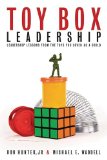 Toy Box Leadership: Leadership Lessons from the Toys You Loved as a Child
Toy Box Leadership: Leadership Lessons from the Toys You Loved as a Child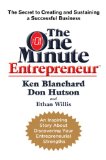 The One Minute Entrepreneur: The Secret to Creating and Sustaining a Successful Business
The One Minute Entrepreneur: The Secret to Creating and Sustaining a Successful Business